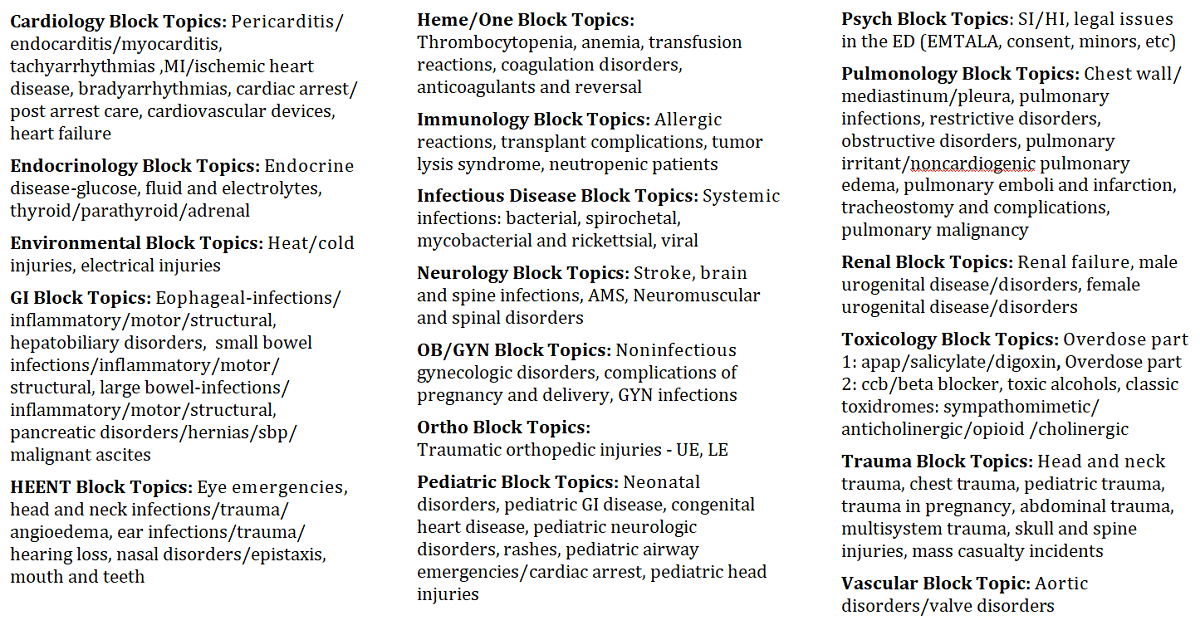APP Emergency Medicine Fellowship
St. Lawrence Region
About the Program
This two year, postgraduate specialty training program for Physician Assistants aims to expand and refine the skills needed for advanced practice providers (APPs) to thrive in both the Emergency Department.
This comprehensive program includes core clinical hours in the Emergency Departments at Canton-Potsdam and Massena hospitals, with specialty rotations and regular didactics to provide additional training and to prepare successful candidates to be successful on the Certificate of Added Qualifications (CAQ) examination. This program meets or exceeds the requirement for CAQ.
The program begins with a “Bootcamp” to provide interns a basic competency with commonly performed ED procedures and common emergency department presentations.
Procedures to be covered include the following:
- Basic ECG interpretation
- Basic ultrasound
- Intubation/airway adjuncts
- IV access
- Lumbar puncture
- Splinting
- Suturing
Throughout the course of this program, interns will complete the following certifications: BLS/ACLS/PALS/NRP/ATLS
Core Clinical Training experience will involve exposure to a variety of practice settings, and off-services specialty rotations. Interns will rotate through the Emergency Department of Canton-Potsdam Hospital (CPH), a 94 bed community hospital, certified stroke center and Level 3 trauma center; and through the Emergency Department of Massena Hospital, a 25-bed acute care hospital. Interns will gain invaluable experience with a broad and unique patient population.
Interns work alongside board certified Emergency Medicine physicians and experienced emergency APPs. The program emphasizes strong clinical training and learning in real time with supplemental didactics during which case-based learning, lectures, and board review will be supplemented with simulation using mannequins with the integration of ongoing procedural training and competency. Procedural training will utilize the Simulation Center and Cadaver Lab at Clarkson University in Potsdam. Interns will also participate in departmental education delivering case presentations at monthly departmental meetings. The interactive lecture-based learning is uniquely designed to supplement hands-on experience.
With an emphasis on lifelong learning, interns will participate in quarterly journal clubs, learning how to rigorously evaluate the medical literature and integrate this into clinical practice.
To Apply/More Information
Prospective candidates are invited to submit the following materials via email. Questions may also be sent via email or by calling 315-265-3300, x1019.
- Cover letter
- CV
- Three letters of recommendation, with at least one coming from an Emergency Medicine provider
- Brief essay (approximately one page) indicating “Why You Are Interested in Emergency Medicine”
Experience in the Emergency Department is a prerequisite. Only complete applications will be considered. The application deadline is April 1. This is a paid position.
Off Service Rotations
Anesthesia
To develop and maintain competence in airway management, interns will work with the St. Lawrence Health (SLH) Anesthesia department in the operating room and PACU. They will learn critical skills of intubation, use of airway adjunct, and management of the intubated patient.
~ 2 weeks
ICU
Interns will rotate through the ICU at CPH where they will evaluate and treat critically ill patients under the supervision of APPs and attending physicians on the unit.
~ 2-4 weeks
Obstetrics
With a focus on obstetric and gynecological emergencies, deliveries and immediate newborn care, interns will rotate through the obstetrics unit at CPH. Interns will complete NRP and PALS prior to or during this block.
~ 2 weeks
Ophthalmology
Interns will learn important ophthalmologic diagnosis skills, including slit lamp examination, working with ophthalmology specialists at the Helen Snell Cheel Medical Campus, Eye Care Center.
~ 1 week
Capstone Project
Interns will complete a capstone project with either an administrative or a clinical focus. Projects may emphasize research, quality improvement, education, patient safety, emergency department operations, or patient care. The goal of these projects include overall department improvement, advancing patient care, or furthering education of patients and/or staff.
Sample Didactic Schedule

Recommended Reading
1. Bouncebacks! Emergency Department Cases ED Returns. Weinstock, et al
2. Avoiding Common Errors in the Emergency Department. Mattu, et al.
3. Tintinalli’s Emergency Medicine: A Comprehensive Study Guide. Tintinalli, et al
4. ECGs for the Emergency Physician 1 and 2. Mattu, Brady
Guided by the framework of both clinical and didactic learning, throughout this program, fellows will be expected to continue learning asynchronously. During “bootcamp,” each fellow will complete a timed mock board exam to get a baseline for areas which especially need attention. Fellows will be assigned questions to complete from Rosh Review and/or Hippo to track their progress throughout the program. Notwithstanding, we will utilize a flipped classroom model with assignments from Tintinalli/Foundations ahead of each grand rounds.
